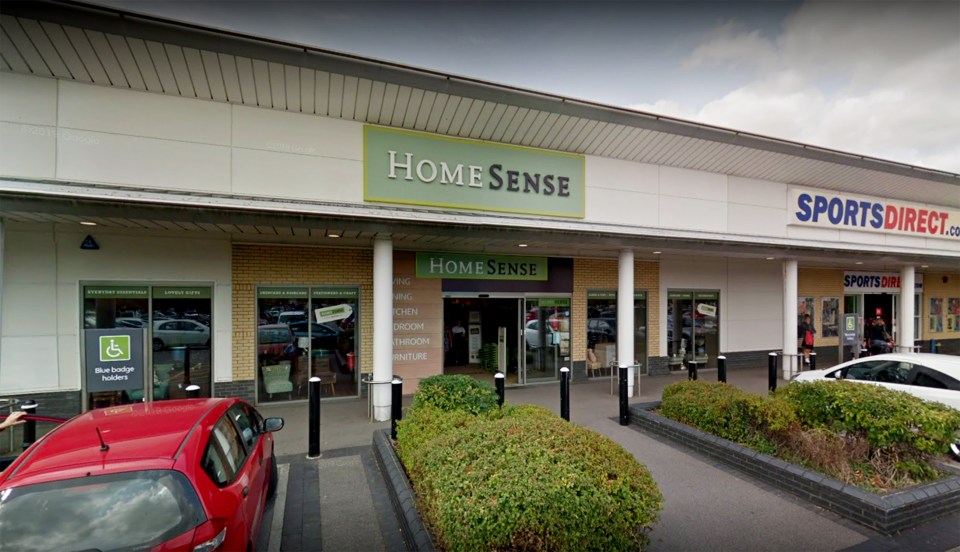SHOPPERS have just hours left to grab a bargain as a popular homeware store is closing its doors for good.
The Homesense store in Stafford is shutting down on Monday, March 31 and it’s launched a huge 30% off sale.
Homesense is part of the same group as TK Maxx and sells homewares such as furniture, lighting, rugs, kitchenware and garden accessories.
It offers designer items at discount prices, making it popular with shoppers, however this couldn’t save it from becoming the latest high street casualty.
When it announced its plans to close earlier this month, shoppers shared their disappointment.
One customer wrote on social media: “I travel an hour, just to go to this shop. I’m literally devastated. There needs to be more Homesense stores not less!”
More on store closures
Another said: “That was a great shop. What next, another £1 shop?”
A third wrote: “I was in complete shock and felt sad when I went on Wednesday. I absolutely love that shop and travel from Uttoxeter to shop there.”
Homesense shut another of its stores in February.
The Salisbury store closed for good because its lease had ended, a company spokesperson said at the time.
Most read in Money
The chain currently has just under 80 stores in the UK.
A number of big-name chains have announced store closures this year, including WHSmith, New Look and Next.
WHSmith will be closing up to 20 stores ahead of a major rebrand that will see it leave the high street forever.
Meanwhile New Look recently closed its St Austell and Gateshead, Tyne and Wear store as well as its locations in Porth, Rhondda Cynon Taf and Wickford, Essex.
Next has said it is closing its Huddersfield store in July.
Why are retailers closing stores?
UK high streets have been struggling in recent years due to a combination of factors.
Shoppers are cutting back on spending due to high inflation, and in the meantime costs have increased for bricks and mortar businesses.
They’re seeing high business rates as well as soaring energy bills and rents.
On top of this, more people have been turning to the convenience of online shopping.
And there’s more pain coming for the retail sector.
READ MORE SUN STORIES
The minimum wage will rise to £12.21 an hour from April, and the minimum wage for people aged 18-20 will rise to £10 an hour, which is likely to hit retailers.
The Government has also chosen to hike National Insurance contributions for employers, which businesses say will raise costs for them significantly.
RETAIL PAIN IN 2025
The British Retail Consortium has predicted that the Treasury’s hike to employer NICs will cost the retail sector £2.3billion.
Research by the British Chambers of Commerce shows that more than half of companies plan to raise prices by early April.
A survey of more than 4,800 firms found that 55% expect prices to increase in the next three months, up from 39% in a similar poll conducted in the latter half of 2024.
Three-quarters of companies cited the cost of employing people as their primary financial pressure.
The Centre for Retail Research (CRR) has also warned that around 17,350 retail sites are expected to shut down this year.
It comes on the back of a tough 2024 when 13,000 shops closed their doors for good, already a 28% increase on the previous year.
Professor Joshua Bamfield, director of the CRR said: “The results for 2024 show that although the outcomes for store closures overall were not as poor as in either 2020 or 2022, they are still disconcerting, with worse set to come in 2025.”
Professor Bamfield has also warned of a bleak outlook for 2025, predicting that as many as 202,000 jobs could be lost in the sector.
“By increasing both the costs of running stores and the costs on each consumer’s household it is highly likely that we will see retail job losses eclipse the height of the pandemic in 2020.”









